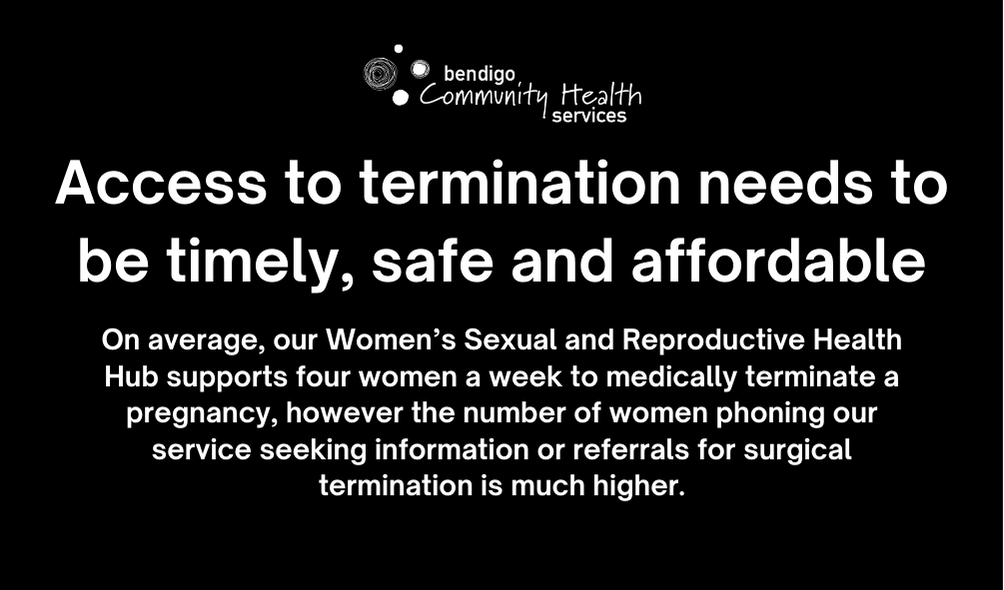Bendigo Community Health Services supports a woman’s right to make decisions about her own health.
Following the dangerous US decision to overturn Roe V Wade, BCHS is concerned about the impact at a local level on women seeking pregnancy terminations (abortions).
BCHS provides specialist nurse-led care for women seeking terminations until 9 weeks gestation.
On average, our Women’s Sexual and Reproductive Health Hub supports four women a week to medically terminate a pregnancy, however the number of women phoning our service seeking information or referrals for surgical termination is much higher.
We receive phone calls from across the broader Loddon Mallee region, where lack of access in some rural areas is a significant barrier to women being able to make choices.
Bendigo Community Health Services Chief Executive Officer, Gerard José, says offering terminations is critical in a healthcare setting.
“Our organisation places value on a woman’s life and her autonomy to make decisions about what is best for her,” he said.
“We know this process can be difficult for many women, and we’re here to support them – emotionally and medically - whether that means offering a medical termination or referring them for surgical termination.
“Access to termination needs to be timely and safe, and free of judgement or stigma.
“We are concerned women may not feel as safe to come forward seeking support as a result of what we are seeing in the US.
“We are also mindful that banning terminations or making women afraid to seek support forces them into seeking unsafe abortions, putting their lives at risk.
“This service is part of a range of critical women’s health programs we offer to support women to lead independent, healthy lives.”
While termination is legal in Victoria, BCHS recognises there are still many barriers for women, including cost.
“While we seek to minimise costs, universal access to reproductive healthcare needs ongoing and sufficient funding for long term viability,” Mr José said.
“It also needs to be properly embedded into the healthcare system, to ensure women receive timely responses.”
